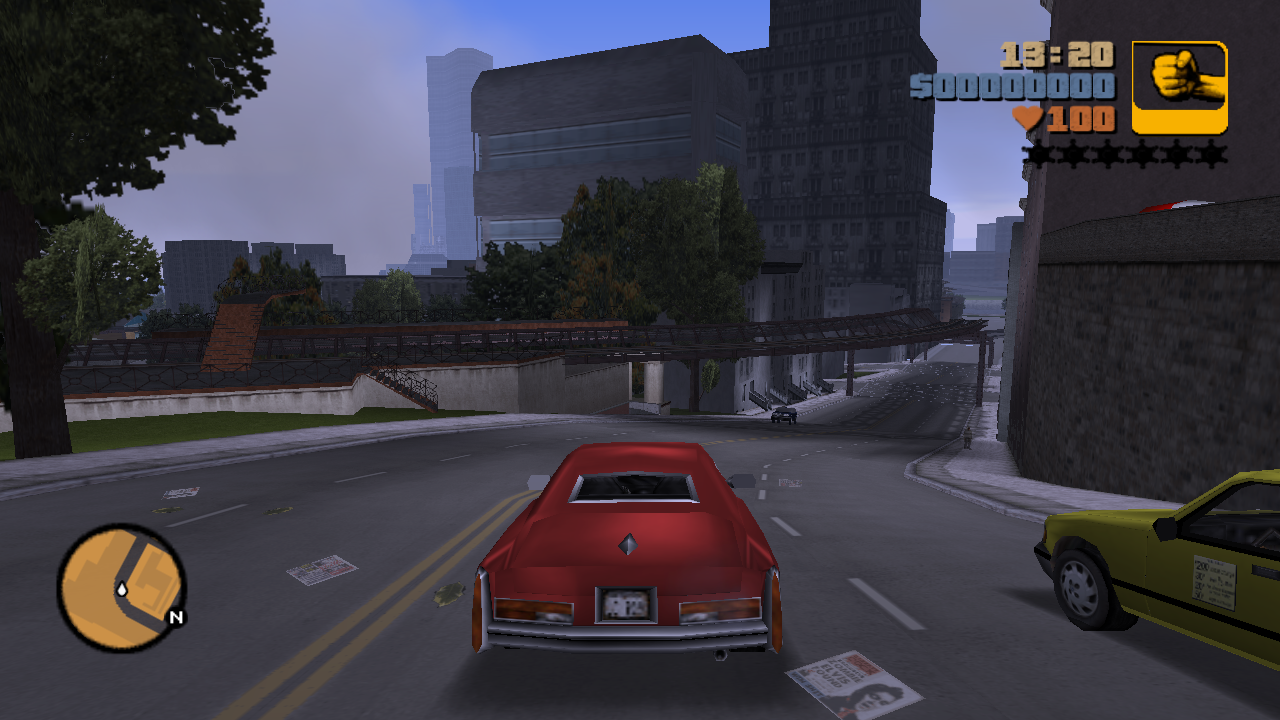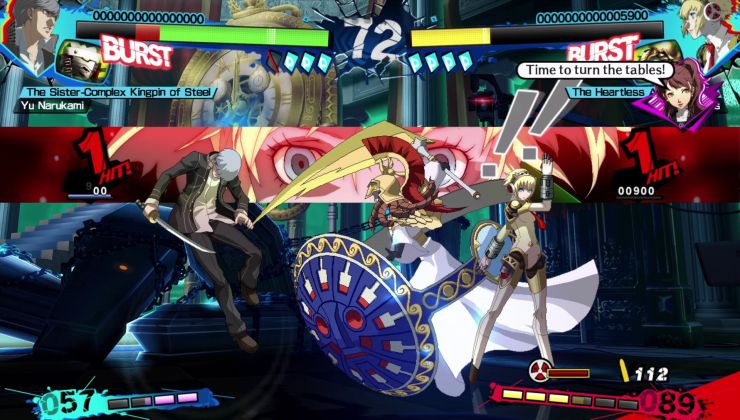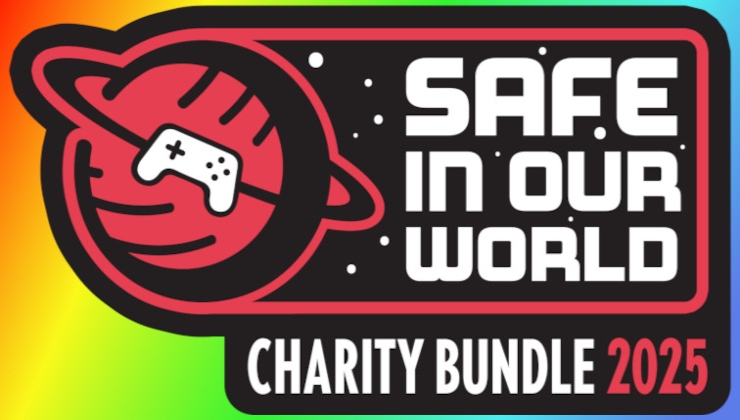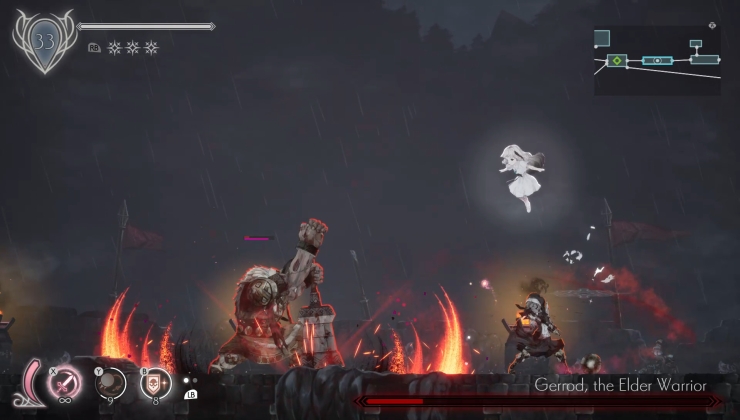After Take-Two put up a DMCA claim against the reverse-engineered source code for GTA III and Vice City, it's now properly back up online on GitHub.
This follows on from a developer of a fork putting in their own counter-claim back in May, which resulted in GitHub restoring their repository. Now though, the main repository from the GTAmodding team is also back online, as they also put in their own counter-claim. This doesn't actually mean what they're doing is legal however, just that Take-Two did not respond to the counter-claims and so GitHub put them back up.
As I said previously, projects like this end up benefiting the original developer / publisher due to an increase in sales. No assets are included, which means to use the projects people need to actually buy a copy of the original game. It does continue to amaze me how so many publishers dislike it and want to keep the code locked-down. Unlike other game engine reimplementations (OpenMW, openXcom, OpenRA, CorsixTH and so on), this isn't exactly "clean" in comparison which is why it's much more of a grey area.
In the counter-claim the team noted:
The code in this repo was developed by reverse engineering object code that is not contained in this repo. We believe that any code in this repo that is similar to code or other content owned by Take-Two is either unprotected by copyright or is permitted under fair use.
The question remains: how long until Take-Two get the legal cogs moving on this again, or will they just leave it be now for these two classic games?
Unfortunately, I'm skeptical about their future actions against this project because
there's another group that tries to do the same thing with Grand Theft Auto San Andreas:
https://github.com/codenulls/gta-reversed
Unlike other game engine reimplementations (OpenMW, openXcom, OpenRA, CorsixTH and so on), this isn't exactly "clean" in comparison which is why it's much more of a grey area.
Just a curiosity, what make it "dirty" in comparison? Is it because of the reverse engineering method?
Well, you have a clean-room implementation and the likes of OpenMW and such that were created unique from the ground-up, and then you have this. It all depends exactly how it's done.Unlike other game engine reimplementations (OpenMW, openXcom, OpenRA, CorsixTH and so on), this isn't exactly "clean" in comparison which is why it's much more of a grey area.
Just a curiosity, what make it "dirty" in comparison? Is it because of the reverse engineering method?
Unlike other game engine reimplementations (OpenMW, openXcom, OpenRA, CorsixTH and so on), this isn't exactly "clean" in comparison which is why it's much more of a grey area.
Just a curiosity, what make it "dirty" in comparison? Is it because of the reverse engineering method?
This issue wouldn't exist if people could run these games using OpenRW. However, the authors stopped working on this project, and now we don't have this option.
Last edited by Calinou on 29 Jun 2021 at 5:20 pm UTC
GTA IV on modern systems is still a disaster, so we also need an RE4.
I wish this was legal for all games older than 10 years. :)
there is another imho very interesting project dealing wiht Magic Carpet 1 and 2.
I opened a forum thread some weeks ago.
https://www.gamingonlinux.com/forum/topic/4922
Magic Carpet is such a great game that I'd like to revisit with a
pumped up reverse-engineered engine (like DevilutionX for Diablo 1).
One of the latest milestones reached mentions a working Linux build target.
Unfortunately, I wasn't able to compile it due to some strange SDL dependencies
that I wasn't able to resolve with the common approach of installing the dev packages.
They currently only ship Windows builds as binaries.
If anyone manages to build and test it, please post short feedback on the state of that project.
Would be very appreciated. Thanks! :)
nice patent trolls lost this one.
Unlike other game engine reimplementations (OpenMW, openXcom, OpenRA, CorsixTH and so on), this isn't exactly "clean" in comparison which is why it's much more of a grey area.
Just a curiosity, what make it "dirty" in comparison? Is it because of the reverse engineering method?
Yes. Usually for clean reverse engineering, you need a [chinese wall](https://en.wikipedia.org/wiki/Chinese_wall): those who write the code must not see any original code, including decompiled sources. This is to make sure that the new code is 100% original.
Take OpenMW for instance: they just reverse-engineer the game file format, and create their own engine from scratch to load these.
Here, they use the original binaries, decompile them, and then change the decompiled output to something that compiles back, while cleaning it up (like giving actual names to the variables).
nice patent trolls lost this one.
Unlike other game engine reimplementations (OpenMW, openXcom, OpenRA, CorsixTH and so on), this isn't exactly "clean" in comparison which is why it's much more of a grey area.Take OpenMW for instance: they just reverse-engineer the game file format, and create their own engine from scratch to load these.
But that way it would be close to impossible to exactly match the gameplay of the original, right?
AI, pathfinding, object interaction, etc...
One could come up with a game that looks like the original but most likely never comes close to the gameplay.
No assets are included, which means to use the projects people need to actually buy a copy of the original game.
Just a thought, but won't this make piracy easier, and that's why they fight it? Sharing just the asset files in illegal ways should logically be way easier than to share the entire game w/implemented copyright protection.
I mean, not for THIS particular game, but in precedence in regards to future cases.
If they start allowing this practise they should logically then also have to allow a reverse engineered much more recent game with a working or tricky copyright protection.
nice patent trolls lost this one.Unlike other game engine reimplementations (OpenMW, openXcom, OpenRA, CorsixTH and so on), this isn't exactly "clean" in comparison which is why it's much more of a grey area.
Just a curiosity, what make it "dirty" in comparison? Is it because of the reverse engineering method?
Yes. Usually for clean reverse engineering, you need a [chinese wall](https://en.wikipedia.org/wiki/Chinese_wall): those who write the code must not see any original code, including decompiled sources. This is to make sure that the new code is 100% original.
Take OpenMW for instance: they just reverse-engineer the game file format, and create their own engine from scratch to load these.
Here, they use the original binaries, decompile them, and then change the decompiled output to something that compiles back, while cleaning it up (like giving actual names to the variables).
As I understand they created functionally identical code using DLL injection process, which is not the same as decompiling -> modifying. But this process does not create infringing code because it is new and just functionally similar/identical. While not clean room, this process is still legit. This could be still made clean room if worked by 2 people separating decompiling and implementing processes.
No assets are included, which means to use the projects people need to actually buy a copy of the original game.
Just a thought, but won't this make piracy easier, and that's why they fight it? Sharing just the asset files in illegal ways should logically be way easier than to share the entire game w/implemented copyright protection.
I mean, not for THIS particular game, but in precedence in regards to future cases.
If they start allowing this practise they should logically then also have to allow a reverse engineered much more recent game with a working or tricky copyright protection.
It's actually no more or less difficult to pirate a game with or without the binary. Technically, just having any part the game is piracy, so, as far as distribution of files, it's six of one, half dozen of another whether it includes the binary or not. After all, the binary is useless without the assets and the assets are just interesting pictures and audio without the binary.
If you bought the game, then, you're free and clear to do anything you want with the binary and assets... as long as it's just for YOU! You can't distribute any derivative work you've done with those assets or binary data. That doesn't mean you can't create your own assets for the game (mods) and distribute them, as they are completely original works.
Now... projects like OpenMW and OpenXCom and the like are perfectly legal because they are building the engine from the ground up by sussing out how the assets are used and how the underlying mechanics worked (game mechanics are not copyrightable, only how those mechanics were exactly implemented). They are, arguably, writing their own game engine. It's an engine that does things very similar to how the original games work, but it is it's own thing and, therefore, legal. The fact that it's intended to be used with the original games assets doesn't make this new engine illegal. You are still required to buy the original game to get access to the assets. Or, of course, you can create all original assets for this new engine, if you'd like, lol.
Hope that all made sense.
Any way I could make steam use the game launcher instead of the official one? I want steam to track my hours played.
You need to download windows version of re3 and unpack it over steam GTA 3 directory, replacing files. Then, in that directory, make backup copies of gta3.exe and re3.exe (just in case), delete original gta3.exe and rename re3.exe as gta3.exe. That's all, you can launch the game from steam.
Tested it for Windows D3D9 64bit re3 version, but it should work with any.
You need to download windows version of re3 and unpack it over steam GTA 3 directory, replacing files. Then, in that directory, make backup copies of gta3.exe and re3.exe (just in case), delete original gta3.exe and rename re3.exe as gta3.exe.
It worked, I though steam would replace it if I use a different file than the original. Thanks
(I'm using the OpenGL version)
It's actually no more or less difficult to pirate a game with or without the binary. Technically, just having any part the game is piracy, so, as far as distribution of files, it's six of one, half dozen of another whether it includes the binary or not. After all, the binary is useless without the assets and the assets are just interesting pictures and audio without the binary.
You missed the point of my post. You're now talking about the legalities. My comment was a response on the claim that "it only leads to more sales". Why would they take these actions if that was the *only* thinkable consequence?
It's much easier to just pirate asset files than cracking executable binaries to build a pirated copy of a game. That goes without saying. If one just bundled the (stolen) assets with this new alternative engine, that's a shortcut to piracy.
And like I said in the post you quote, I don't think they bother with this because of this particular game as it's so old (and practically free anyways). They just need to fight these initiatives because this might be a problem if it is done on newer titles with a higher market value (and a working DRM).
Last edited by Beamboom on 1 Jul 2021 at 2:52 pm UTC
It's actually no more or less difficult to pirate a game with or without the binary. Technically, just having any part the game is piracy, so, as far as distribution of files, it's six of one, half dozen of another whether it includes the binary or not. After all, the binary is useless without the assets and the assets are just interesting pictures and audio without the binary.
You missed the point of my post. You're now talking about the legalities. My comment was a response on the claim that "it only leads to more sales". Why would they take these actions if that was the *only* thinkable consequence?
It's much easier to just pirate asset files than cracking executable binaries to build a pirated copy of a game. That goes without saying. If one just bundled the (stolen) assets with this new alternative engine, that's a shortcut to piracy.
And like I said in the post you quote, I don't think they bother with this because of this particular game as it's so old (and practically free anyways). They just need to fight these initiatives because this might be a problem if it is done on newer titles with a higher market value (and a working DRM).
My apologize if I misunderstood your original post.
To the question, then, of "Why would they take these actions if that was the *only* thinkable consequence?"... My jaded side says it's some corporate admins that think something to the effect of "Why do we want players buying our old game for $10, when we can funnel them to playing GTA-V for $30... plus, more importantly, all of that potential in-game-purchases monies!"
While you'd think *any* money would be worth it... why settle for *any* money when you could force customers to a product that could take *all* the money!
Now... I'm not fully up on the details to the current GTA3 projects, so I'm not sure about their methods of reverse engineering. It's possible that Take-Two didn't really care, one way or the other (hence, they didn't follow through on the counter claims), but given this slight legal loophole, decided to issue a DMCA in order to "scare" otherwise uninformed gamers away from getting the cheaper GTA games to use them on this new engine which runs better, and, instead, settle on the buying the newest GTA (again, with all of that sweet, sweet in-game-purchase potential!)
https://lutris.net/games/grand-theft-auto-iii/
https://lutris.net/games/grand-theft-auto-vice-city/
Compatible with Steam GTA III/Vice games, but should work with all installs
It worked well for the most part, did crash randomly on a taxi mission, but aside from that all went well and worked perfectly on Linux
That means I will probably end up playing this game often
While I see why this could be an IP case, it's about the same as reimplementing an API, as in the Java case, or reimplementing D3D9 or DX11, wine inplementation of windows APIs etc.
It's not the same code, even though it works the same way.
Legally, it's debatable, but I do not think just becsuse code works the same way it's an IP.
That's for courts to decide. But it's nothing more than a reimplementation looking at ehat the original does.
The benefit out of that takedown notice or probably in the end lawsuite for Take-Two is questionable.











 How to set, change and reset your SteamOS / Steam Deck desktop sudo password
How to set, change and reset your SteamOS / Steam Deck desktop sudo password How to set up Decky Loader on Steam Deck / SteamOS for easy plugins
How to set up Decky Loader on Steam Deck / SteamOS for easy plugins
See more from me